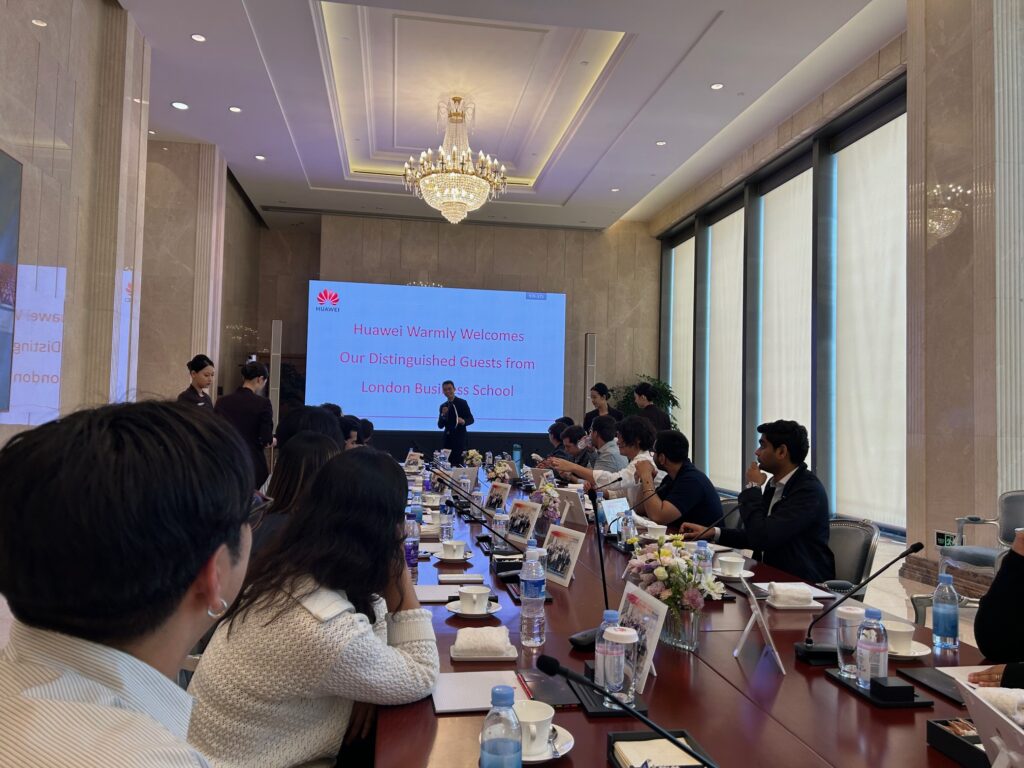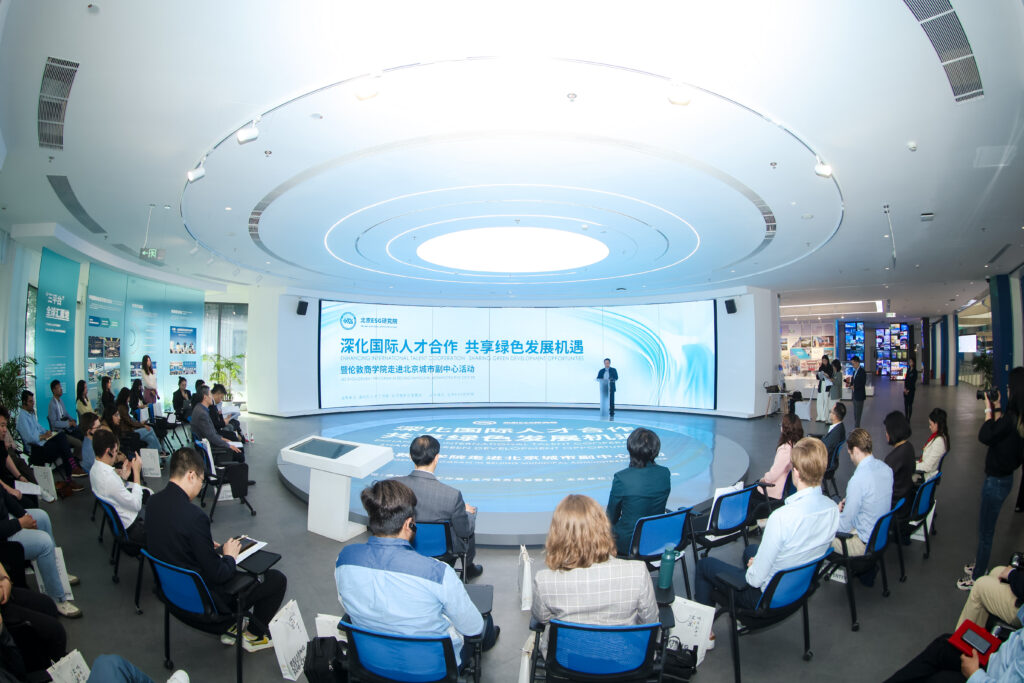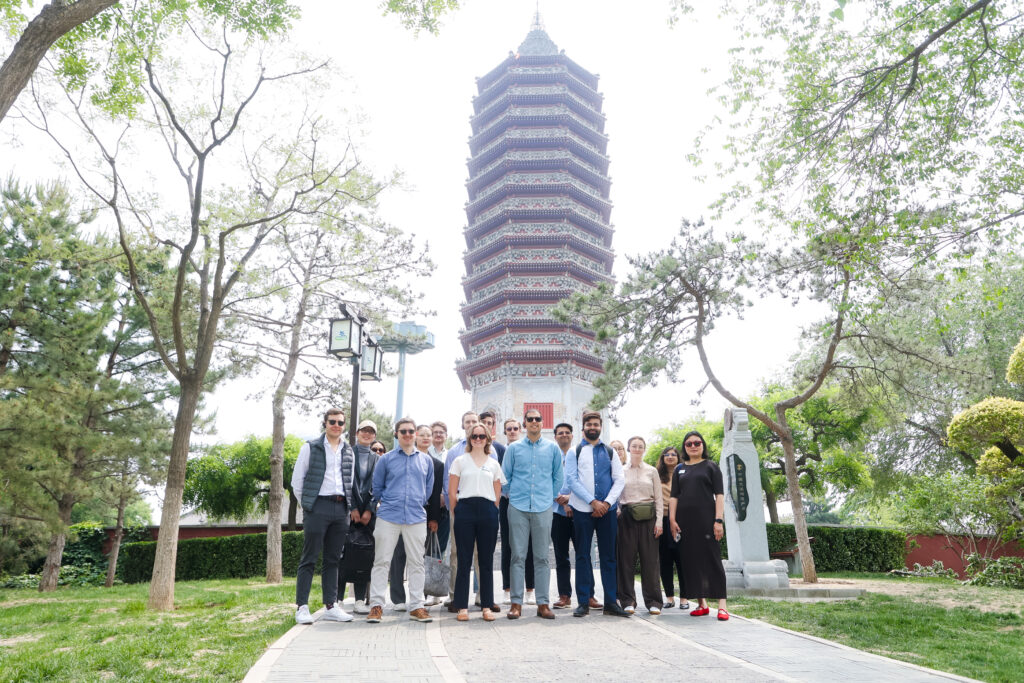
By Navid Eskandar, MBA2025
As part of London Business School’s Global Experience, I spent five intense days on the ground in China—meeting startup founders, corporate giants, and policy thinkers shaping the future. What I walked away with wasn’t just knowledge, but a shift in perspective.
Here are a few moments that stood out:

At Yuanchu Technology, I met a founder turning steel slag and CO₂ into calcium carbonate (a high value product used in plastics manufacturing)—a climate tech innovation with real commercial traction. They’ve laid out a profit-driven path to decarbonisation with a global vision. It was a reminder that the best sustainability ideas don’t always come from Silicon Valley.
At NIO, we test drove EVs with swappable batteries, experienced seamless AI car assistants, and talked through the economics of battery-as-a-service. It wasn’t just cool—it was transformative. Innovation here is as much about business models as it is about hardware.
At Huawei, I saw first-hand how a tech powerhouse is reshaping connectivity, cloud infrastructure, and smart cities—not just in China, but in Africa and beyond. They’re building globally, especially in regions often overlooked by traditional tech giants.

Lenovo surprised me too. Lenovo’s push for ESG accountability across Scope 3 emissions was a standout: a real case of ESG not as compliance, but as competitive advantage.
And then, a talk by Dr. Ma Jun who isn’t just a finance expert—he’s a force. Chairman of the Green Finance Committee of China, co-chair of multiple global sustainable finance efforts (G20, Belt & Road, IPSF). His mission to define what counts as “green” globally has helped determine where trillions in green bond funding will flow.

And a final reflection: today’s superpowers cannot afford to rest on their laurels. The pace, the discipline, and the ambition I saw in China this week was not accidental—it’s strategic, long-term, and deeply rooted in national priorities.
Beijing challenged me. It revealed the complexity of China’s rise, the nuance behind government-driven ESG, and the ambition of its tech ecosystem. It also reminded me that understanding global business today means stepping into different paradigms—not just reading about them.
